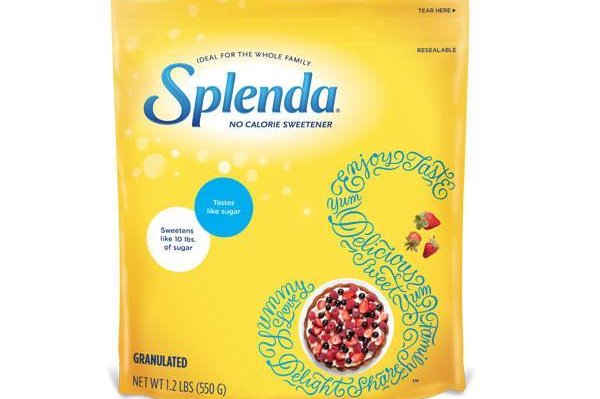The European Food Safety Agency stated sucralose, the artificial sweetener in Splenda, was not cancer causing, however the Center for Science in the Public Interest still recommends consumers to avoid using the product. Photo courtesy of Splenda
May 17 (UPI) -- A recent decision by the European Food Safety Agency, or EFSA, on the safety of the artificial sweetener used in Splenda, sucralose, has some groups crying foul.
On May 8, the EFSA announced it believes sucralose to be safe and not carcinogenic, which is a conclusion shared by several regulatory agencies in the United States and Europe.
The EFSA said they do not believe the available data support conclusions by the controversial Ramazzini Institute that sucralose causes leukemia and related blood cancers in male mice.
The Ramazzini Institute is a research laboratory in Italy that has come under scrutiny over its testing methods and findings, including a 2016 finding that sucralose is a carcinogen.
The U.S. Food and Drug Administration, or FDA, approved sucralose for use in 15 food categories in 1998 and for use as a general purpose sweetener for foods in 1999, under certain conditions of use.
Sucralose has been extensively studied, with more than 110 safety studies reviewed by FDA for its approval as a general purpose sweetener for food.
"The testing required by regulatory agencies in the U.S. and around the world are incredibly detailed, comprehensive, and incorporate large margins of safety by using doses of the ingredients that far exceed those expected in humans," Berna Magnuson, scientific and regulatory consultant for Heartland Sweeteners, the company that makes Splenda, told UPI.
"All agencies that have reviewed the database of safety studies for sucralose agree that the amounts used in foods and beverages are safe and have approved its use in their jurisdiction. Within each agency is a large team of independent experts that have carefully reviewed the totality of the safety data, and who continue to monitor studies that are published subsequent to approval, such as the study by the RI [Ramazzini Institute]. Not one has changed its approval. So consumers should have confidence that there has been extensive testing prior to approval and ongoing monitoring to ensure sucralose is safe to consume."
In 2016, the Center for Science in the Public Interest, or CSPI, downgraded its safety rating of the sucralose, the artificial sweetener in Splenda, from "caution" to "avoid" after findings from the Ramazzini Institute's findings that the chemical caused leukemia and other blood cancers in male mice.
CSPI said in a May 9 press release that they continue to recommend that consumers, especially children and pregnant women, avoid sucralose and aspartame, as well as acesulfame-potassium and saccharin -- all of which have been shown in at least one study to be potentially unsafe.
"We conducted a thorough investigation with Freedom of Information Requests and found that the Ramazzini Institute is a reliable lab and produces results that are comparable with the National Toxicology Program," Lisa Lefferts, a senior scientist at CSPI, told UPI, adding they had conducted this investigation during their analysis of the safety of aspartame.
Lefferts said, however, that the National Toxicology Program, or NTP, has not studied sucralose and has not done a comparable study on aspartame.
According to Lefferts, the EFSA was overly dismissive of the findings of the Ramazzini lab on another artificial sweetener, aspartame, caused cancers at multiple sites in rats and mice.
"EFSA is notorious for having industry-friendly opinions and for conflicts of interests on its panels. Our bottom-line advice to consumers is that they continue to avoid sucralose," Lefferts said.
"The potential cancer risk to humans is small, but there is no reason to accept any cancer risk from these products. That said, the risks that overconsumption of sugar and especially sugar-sweetened beverages pose, of diabetes, heart disease, and obesity, far outweigh the cancer risk posed by artificial sweeteners."
The National Toxicology Program, was established in 1978 by the then Secretary of Health, Education and Welfare, known today as the U.S. Department of Health and Human Services, to coordinate toxicology testing programs within the federal government.
"To my knowledge, the NTP did not conduct any studies specifically on sucralose," Magnuson said, adding that the NTP conducted an investigation into the validity of cancer studies by the Ramazzini Institute.
"In that study, an independent group of pathologists for the NTP reviewed the pathological slides and diagnosis from the study and compared their results with those of the pathologists at the RI and show that the RI often misdiagnose infections as cancer," Magnuson said.















